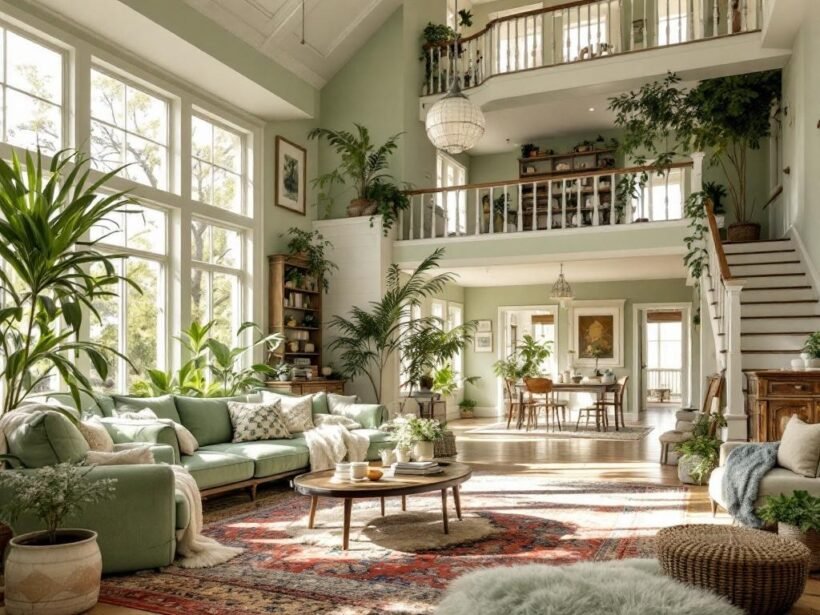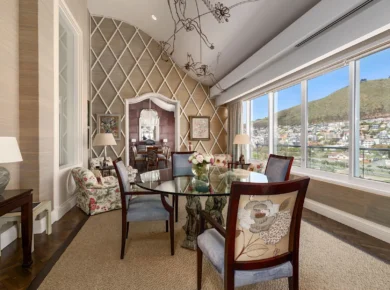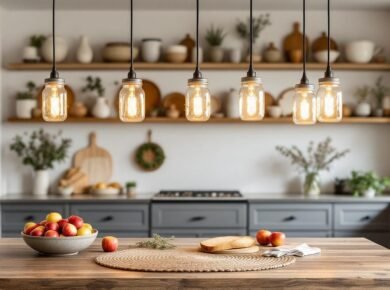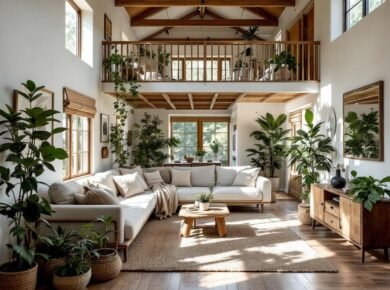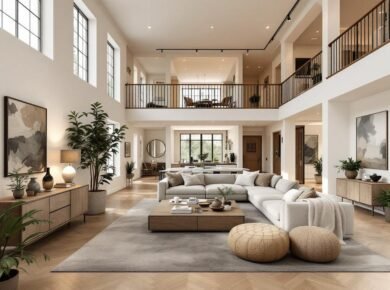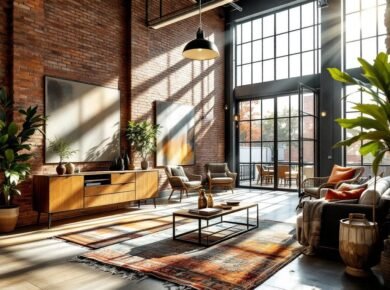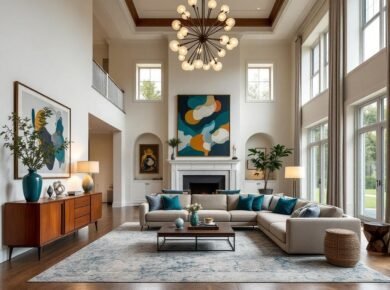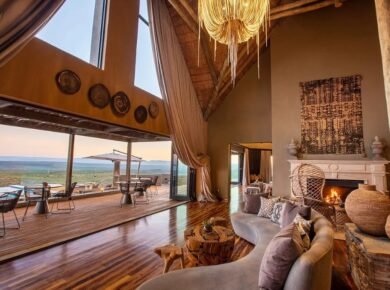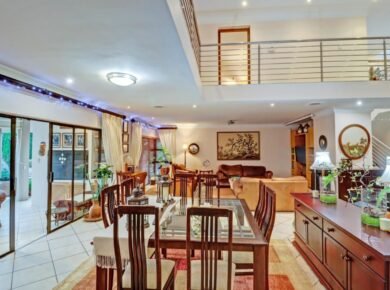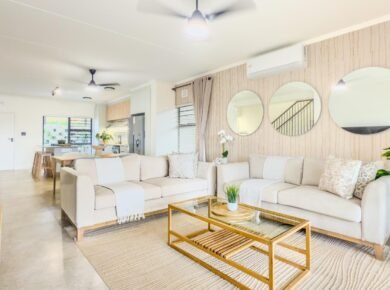Green is the new neutral, grounding our homes in beauty and gentle transformation. At the heart of every design, green quietly welcomes us home. As designers, we watch it wrap rooms in calm, bringing warmth and clarity to everyday living. Each shade, from soft sage to deep olive, feels like a breath—a gentle invitation to rediscover comfort, clarity, and connection, no matter the season.
Green as a Philosophy for Intentional Living
Embracing green as a neutral allows us to live with intention and warmth. Our team sees how green, woven through a home, shapes a peaceful rhythm. Soft, natural tones don’t demand attention. Instead, they gently anchor the space, letting everything else bloom around them. When we choose green, we guide our clients toward harmony—spaces that nurture, not overwhelm. This soft, organic palette fills rooms with hope, promise, and a sense of gentle renewal.
Building on Sustainable Foundations
Sustainability brings depth and meaning to green-inspired design. Every project presents an opportunity to blend beauty with responsibility. We lean into brands like LOOMLAN—their eco-conscious sideboards, plush rugs, and accent tables feel as fresh as a morning breeze. The craftsmanship, from zero-VOC finishes to thoughtful details, creates a nurturing home. Choosing these pieces means every breath at home feels lighter, and every corner is layered with care and environmental mindfulness.
Nature’s Neutral Palette: Outdoor Living
Outdoor spaces blossom when green becomes a gentle base. We find inspiration in brands like LOOMLAN Outdoor, where sustainability and style meet under open skies. Earth-friendly materials—reclaimed teak, UV-resistant wicker—invite you outdoors for slow mornings or joyful evenings. These pieces blend seamlessly with the landscape, making every gathering feel rooted and serene. With each transition between indoors and out, the home expands, offering comfort and calm.
Accent Pieces: Storytelling Through Sustainability
Every accent piece whispers your story, adding layers of comfort and meaning. At Uptown Sebastian, we discover American-made sofas and chairs that blend mindful sourcing with deep comfort. Each piece becomes an heirloom, expressing warmth through top-grain leathers and customizable details. Meanwhile, Curated Home Gifts offers finishing touches crafted from repurposed woods and gentle finishes. These treasures fill a space with history, heart, and quiet sustainability, transforming rooms into sanctuaries.
Materials That Whisper and Endure
Timeless materials create foundations for sanctuary and clarity. Our designs lean into reclaimed wood, FSC-certified teak, and zero-VOC finishes. Washable rugs and resilient frames foster relaxed living, allowing you to move through spaces with ease. Each green-inspired neutral supports color and texture, creating a layered home that feels both fresh and enduring. These choices nurture family life and ask less of the earth, gently supporting well-being through every season.
Everyday Inspiration: Green Design in Daily Life
Small changes can gently transform your living space. A new washable rug from LOOMLAN, a subtly textured pillow, or a modular sideboard with hidden storage offers instant comfort and clarity. Outdoor lounge furniture from LOOMLAN Outdoor brings tranquility to balconies and gardens, while flexible accents adapt to your evolving needs. Each thoughtful choice—no matter how small—deepens your sense of home and brings intentional living to the forefront.
Wellness and Wholeness at the Heart
Green-inspired design nurtures both emotional wellness and the earth. Each sustainable choice, from zero-VOC finishes to reclaimed woods, weaves health into daily living. Air feels fresher, and every surface tells a story of care. Our favorite brands—LOOMLAN, LOOMLAN Outdoor, Uptown Sebastian, and Curated Home Gifts—help us reimagine what living well means. Here, sustainability sits quietly at the heart of every collection, letting your unique style shine in a nurturing, beautiful space.
Dreaming Forward: Green as the New Neutral
Let green guide you as you dream and shape your sanctuary. As you reflect on what home means, imagine green as your gentle foundation. Every texture, every shade, and every carefully chosen accent becomes a layer of comfort, possibility, and renewal. Through every season, green anchors your home in warmth, serenity, and endless transformation—always inviting you to rediscover joy within your own walls.
Tags: Style, Color Inspiration, Design Trends, Room Makeovers, Sustainability, Wellness, Green Interior Design, Warm Minimalism
Recommended Stores

LOOMLAN
Home furnishings and decor with Zero-VOC finishes: sideboards, dining chairs, sofas, rugs, and more.

LOOMLAN Outdoor
Luxury outdoor seating, tables, and lounges. Sustainable FSC teak, aluminum, and UV-stable wicker.

Sideboards & Things
Durable sideboards, buffets, and accent cabinets. Repurposed woods, eco-friendly finishes, and unique global styles.

Uptown Sebastian
American-made customizable furniture in top-grain leathers. Premium craftsmanship with a focus on sustainability.
